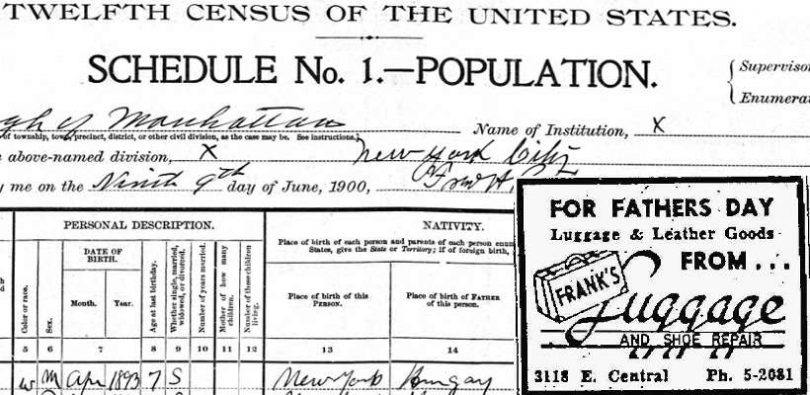Table of Contents
There are a number of different resources and techniques with which you can conduct records search with a genealogist to determine a family or individual’s ancestry. You can conduct records search based on topics, or types of records available. In this article I’ll take you through some of the methods by which you can explore historical records with a Genealogist.
Some of the most common resources genealogists use to determine ancestry are Census Records, Military Records, Immigration Records (i.e., passenger lists), Naturalization Records, and Land Records. These are some of the most easily available and meticulously kept records passed down through history, and as such they can be a treasure trove revealing intricate webs of ancestry.
Exploring your historical past makes it easier with the help of a genealogist, as they are great at all record search techniques.
Census Records Search
The only base information you need to initiate a census records search is the name of an ancestor along with their state of residence.
The Federal Population Census was first conducted in 1790 in the US, and it’s conducted every 10 years regularly. However, there’s also a 72-year restriction on access to Census information for privacy reasons, and as such you can only look for records up until 72 years prior from right now, that is, 1940. If you’re exploring historical records with a genealogist, you’ll find that they’ll start the ancestry search with the 1940 census, and then trace the roots backwards.
Census records can provide the following information:
- Names of ancestors, along with their ages at various points in history.
- Their state of residence.
- Their state or country of birth.
- Information on their parent’s birthplaces.
- Immigration status, along with year of immigration.
- Marital status, along with year of marriage.
- A run down of occupations through various periods in history.
- A brief value of their property.
- If they held farm land, you also get a summary of the crops they grew.
Military Records Search
Military records can be a valuable source of ancestral information for significant periods in history. The National Archives Building in Washington D.C. holds records for all significant wars leading from the Revolutionary War all the way to 1912. In addition to that, you can also access the World War military records from the National Military Personnel Records Center in St. Louis, Missouri.
Conducting a Military records search isn’t as straightforward, linear, or chronological as a Census Record. The initiative depends on several factors such as the period you’re looking for, the branch of service your ancestor was supposedly in, whether they were a part of the Regular Army or the volunteer unit, and many other factors. As such, this can be a complicated process for the genealogist.
If done correctly, Military Records can reveal the following pieces of information:
- A comprehensive service record, including their biographical data, medical information, etc.
- Any pension applications and payments information. These also reveal additional biographical information on the veteran’s family.
- Bounty Land information if the ancestor served in the War of 1812, the Revolutionary War, the Indian Wars, or the Mexican War.
Immigration Records Search
These are also called “ship passenger arrival records” as they’re based on the ship’s passenger lists. This helps determine the physical characteristics of an individual, their country of residence and birth, the date of immigration, profession, amount of money in their possession, and information of relatives in the immigrating country.
These documents can be searched for based on Port of Arrival and Year of Immigration. Records are available for immigration between 1820 and 1982.
Naturalization Records Search
Following through on the Immigration Records, the Naturalization Records are based on the point when aliens become official citizens of the United States. These records can provide an individual with much of the same information as the Immigration Records, however since these documents are formed post-immigration, they are more up to date. As such, they can also reveal the individual’s current address, marital status, occupation, etc.
Land Records Search
Land records are based on the transference of land from the U.S. Government to private ownership, and these documents cover the 30 original public land states. Land records can reveal a number of valuable pieces of information such as an individual’s ancestry, history, titles, place of birth or residence, economic status, and information on other family members.

